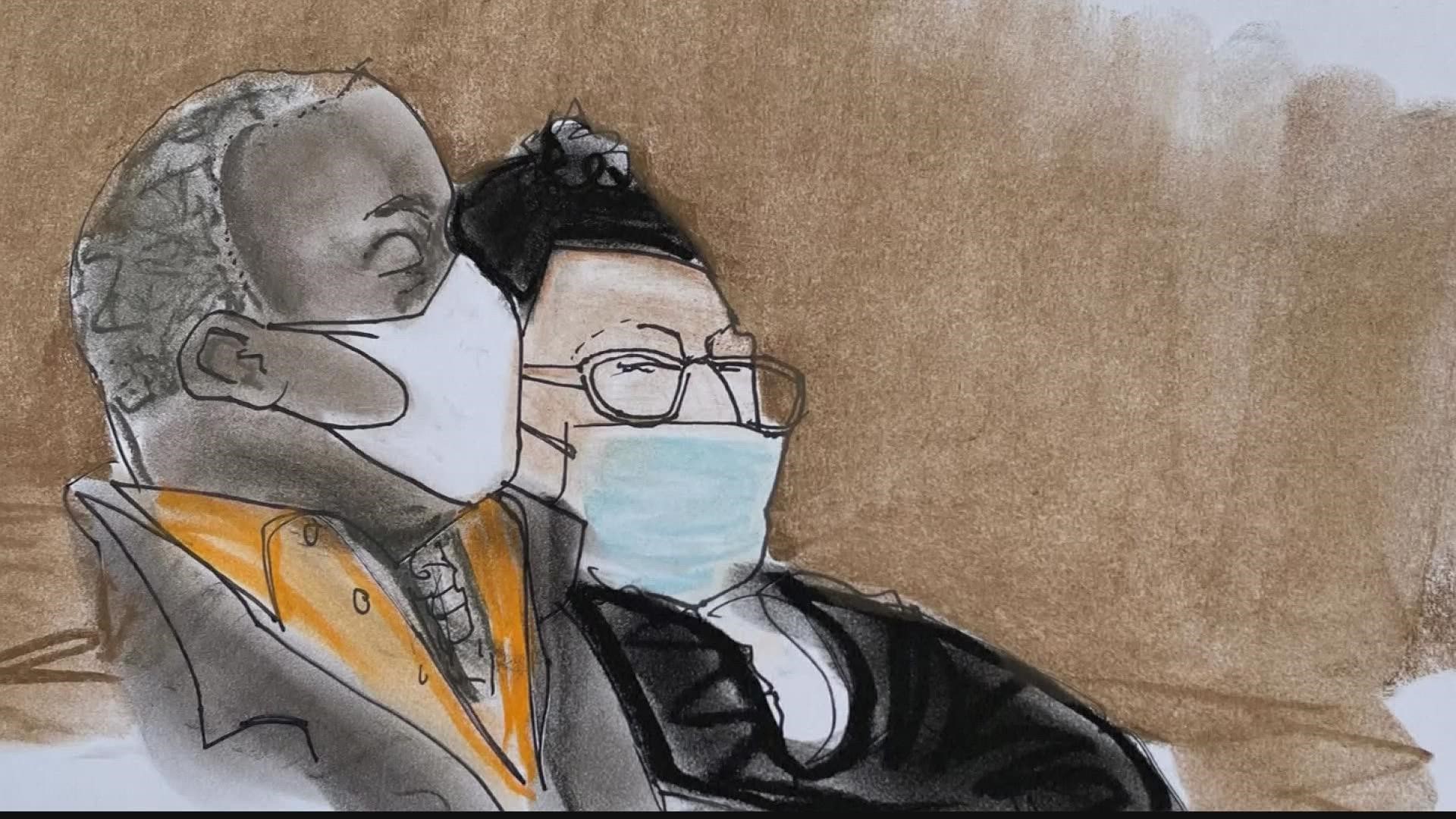BRUNSWICK, Ga. — The three white men convicted of killing Ahmaud Arbery were found guilty on all charges in a federal hate crimes trial Tuesday.
The federal trial came after Gregory and Travis McMichael, and their neighbor William "Roddie" Bryan were convicted of murdering Arbery last year in a state trial. Each received life in prison as a result of Georgia minimum sentencing guidelines.
RELATED: Jury finds men who murdered Ahmaud Arbery guilty on all charges in federal hate crimes trial
Although the state trial concluded last year, the legal process continued for the McMichaels and William "Roddie" Bryan.
Here's why Ahmaud Arbery's killers were back in court a second time
The McMichaels and Bryan found themselves back in court on Feb. 14. The federal trial served to determine if the three men who chased and killed Arbery in a Brunswick neighborhood did so because of the color of his skin.
During the state trial prosecutors focused on proving that defendants had actually committed the crimes. In the federal trial they focused on if the crimes were racially motivated.
At the time of the state trial, Georgia did not have a law specifically targeting hate crimes and so state prosecutors could not bring hate crime charges. In order for the McMichaels and Bryan to be charged with hate crimes, the federal government had to step in.
It is a crime to interfere with someone who is participating in a federally protected activity such as public education, employment, jury service, travel, or the enjoyment of public accommodations because of their race, color, religion, or national origin according to federal law.
In Arbery's case - the three men interfered by chasing, shooting, and killing the 25-year-old while he was running on a public street
To prove racial motivation behind the three men's actions jurors were presented with recollections of neighbors and investigators, forensic and autopsy evidence and viciously racist and at-times violent texts and social media posts of Travis McMichael, along with racist communications by Greg McMichael and Bryan during the five-day federal trial.
Some of the evidence, including racially-charged texts and social media posts, presented during the federal trial wasn't included in the state trial.
Impact of Ahmaud Arbery trial in Georgia
A new hate-crime law was signed by Gov. Brian Kemp in June of 2020 - the new legislation imposes additional penalties for crimes motivated by a victim's race, color, religion, national origin, sex, sexual orientation, gender, or disability.
The bill, HB426, was signed four months after the killing of Arbery in south Georgia. Before the signing, Georgia was one of only four states in the US without a hate crime law on the books.
With Kemp's signature, only South Carolina, Arkansas and Wyoming remain without such a law.
Georgia also established Feb. 23 as Ahmaud Arbery Day after a resolution was introduced in the Georgia House by Rep. Sandra Scott.
The resolution came ahead of the federal hate crimes trial for Arbery's convicted murderers.
The day is set in place in honor of Arbery, who was murdered on Feb. 23, 2020.
The resolution declares that "Feb. 23 will forever be known annually in the State of Georgia as The Ahmaud Arbery Day," and encourages Georgians to participate in the "Run with Maud" movement, of running 2.23 miles on Feb. 23.
Arbery also been able to inspire the repealing of the state's slavery-era citizen's arrest statute.
To learn how you can participate in Ahmaud Arbery Day in Georgia click here.
.
.

